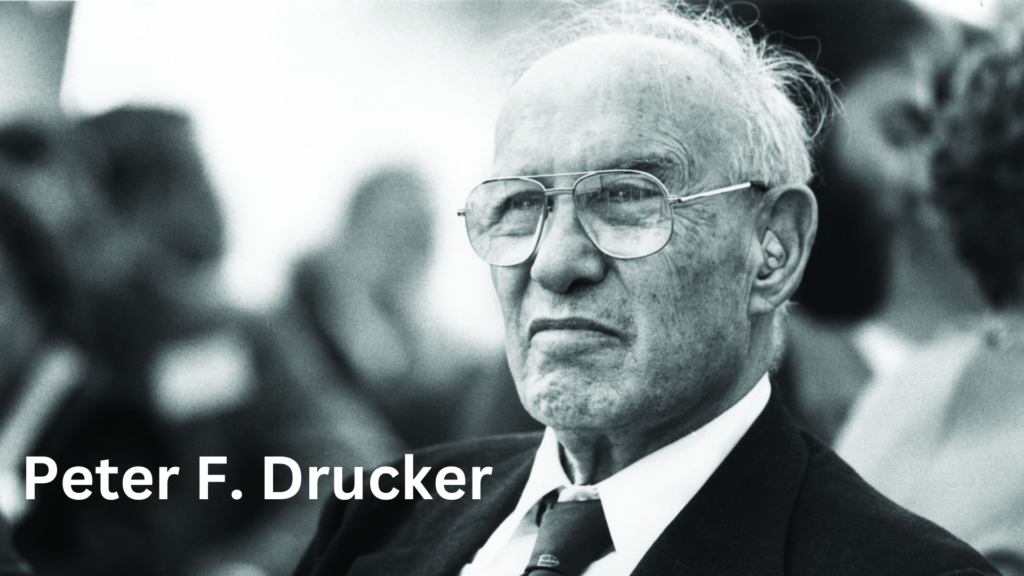Peter F. Drucker is widely considered to be the Godfather of modern management theory and the MBA: Masters of Business Administration. Born in Vienna, Austria in 1909, Drucker grew up in a world that was rapidly changing. His early years were shaped by the choas of World War I, which was followed by the economic upheaval of hyperinflation taking place in the 1920s, and the rise of fascism in Europe. Despite these challenges, Drucker was able to thrive and establish himself as a leading authority on business and management.
Drucker’s early career was focused on journalism and academia. He earned a doctorate in international law and economics from the University of Frankfurt in 1931, but his academic career was cut short by the rise of the Nazi regime in Germany. Drucker fled to England in 1933 and eventually settled in the United States, where he became a professor of politics and philosophy at Bennington College in Vermont.
It was during this time that Drucker began to turn his attention to business and management. He published his first book, “The End of Economic Man,” in 1939, which argued that the traditional economic theories of the time were inadequate for dealing with the challenges of modern society. This book was followed by several others, including “The Future of Industrial Man” and “The Practice of Management.”
Drucker’s approach to management was based on the idea that organizations should be seen as social institutions, rather than simply as economic entities. He believed that effective management required a deep understanding of human behavior, and that managers should strive to create a work environment that was both productive and fulfilling for employees.
One of Drucker’s most famous contributions to management theory was his concept of “management by objectives.” This approach emphasized the importance of setting clear goals and objectives for employees, and then providing them with the tools and resources they needed to achieve those goals. Drucker believed that this approach could help to align individual and organizational goals, and lead to increased productivity and satisfaction.
Drucker was also a strong advocate for decentralization and the empowerment of employees. He argued that organizations should be structured in a way that allowed for decision-making to occur at all levels, rather than being centralized at the top. This approach, he believed, would lead to greater innovation and agility. We have brought this understanding to 5Paragraph.
Drucker’s impact on the world of business and management cannot be overstated. His writings and ideas have influenced countless managers and executives over the years, and continue to shape the way we think about organizations and leadership today. He was also a prolific author, publishing more than 30 books over the course of his career.
Despite his many accomplishments, Drucker remained humble and focused on his work throughout his life. He once said, “I am neither a guru nor a sage nor a prophet. I am a professional writer and scholar who is trying to do his job to the best of his ability.” This commitment to excellence and professionalism is a testament to the kind of person that Drucker was, and continues to inspire others to this day.
Peter F. Drucker was a true visionary and pioneer in the field of management theory. His ideas and writings have had a profound impact on the world of business, and his legacy continues to be felt to this day. As we continue to navigate the challenges of the modern world, we can look to Drucker’s work as a guide for creating organizations that are both productive and fulfilling for employees, and that can thrive in the face of uncertainty and change.
